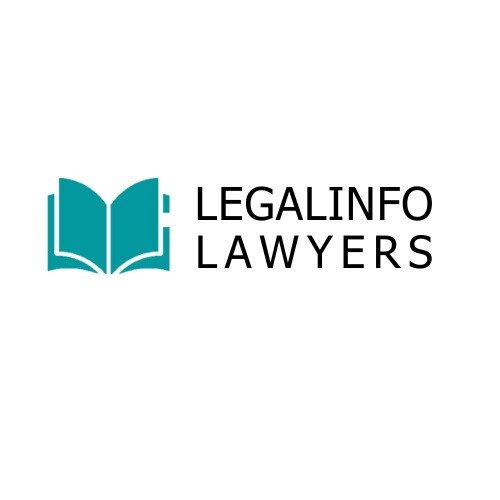Best Debt & Collection Lawyers in Indonesia
Share your needs with us, get contacted by law firms.
Free. Takes 2 min.
Or refine your search by selecting a city:
List of the best lawyers in Indonesia
Indonesia Debt & Collection Legal Questions answered by Lawyers
Browse our 1 legal question about Debt & Collection in Indonesia and read the lawyer answers, or ask your own questions for free.
- I have a problem with a debt collection from my son and his wife.
- I provided, on their request, a loan for buying equipment for the Clinic in total € 305.000, which should have been paid back by February 2024. There is also another receivable on a liquidation payment of 2 companies I owned in Medan for an amount of € 240.000. Can you... Read more →
-
Lawyer answer by Law Offices Syapri Chan & Partners
I saw on the Lawzana platform that someone is looking for a Banking and Finance Lawyer. Coincidentally, our law firm specializes in Banking and Finance cases. Do you have our WhatsApp number? Thank you. Best regards, Law Offices of Syapri...
Read full answer
About Debt & Collection Law in Indonesia
In Indonesia, the legal framework governing debt and collection is primarily derived from the Civil Code and supplemented by various regulations and decrees that address financial transactions and debt management. The key legal instruments are designed to regulate the interactions between creditors and debtors, providing mechanisms for the resolve disputes and protect the rights of all parties involved. Debt collection practices are legally sanctioned as long as they comply with recognized ethical and legal standards, ensuring fairness and transparency throughout the process.
Why You May Need a Lawyer
There are numerous situations in which seeking legal advice in debt and collection issues may be beneficial:
- Negotiating with creditors to settle outstanding debts before they escalate into legal disputes.
- Understanding your rights as a debtor when facing aggressive collection practices.
- Developing a debt repayment plan to manage financial obligations sustainably.
- Defending against lawsuits filed by creditors seeking repayment.
- Challenging unfair debt collection practices that may violate laws or regulations.
- Assisting creditors in legal action to recover debts, ensuring compliance with local laws.
- Advising businesses on structuring and managing credits to minimize risks of bad debts.
Local Laws Overview
In Indonesia, several key aspects of local laws are particularly relevant to debt and collection:
- Principle of Consensus: Any debt agreement reached must be mutual and consensual among parties involved, documented through appropriate legal contracts.
- Bankruptcy Law: The Bankruptcy Law provides creditors a mechanism to declare a debtor bankrupt if they fail to settle outstanding obligations, subject to specific conditions and court proceedings.
- Interest Rate Regulations: Any interest imposed on debt must adhere to the maximum legal limit to prevent exploitative practices.
- Debt Recovery through Courts: Creditors can file a civil lawsuit to recover debts, obtaining a court issuance that can enforce repayment.
- Debt Collection Agencies: Operate under strict regulations ensuring fair practice and prohibiting harassment or undue pressure on debtors.
Frequently Asked Questions
What legal options do I have if a debtor fails to pay?
You can negotiate a repayment, engage a collection agency, or resort to civil litigation to obtain legal enforcement for debt recovery.
Can interest be charged on unpaid debts?
Yes, interest can be charged, but it must comply with agreed terms and statutory limits to avoid legal disputes.
What are my rights if approached by a debt collector?
You have the right to be treated with respect and without harassment. Collection practices must adhere to ethical standards and legal regulations.
Can a debt collector contact my family members?
Debt collectors are typically allowed to contact your family only to confirm your location, contact information, or secure a meeting arrangement but cannot disclose your debt details.
What is the process of declaring bankruptcy in Indonesia?
To declare bankruptcy, a debtor or creditor must file with the Commercial Court, presenting evidence of unpaid debts. Court proceedings then determine the outcome.
How can I protect myself from foreseeable debts?
Engage in prudent financial planning, maintain thorough records of transactions, ensure clear contractual terms, and seek legal counsel for complex arrangements.
What can I do if I believe a debt is unjust?
Review contractual terms and seek legal advice to contest the debt's legitimacy, negotiating with creditors, or pursuing a court resolution if necessary.
Are there legal limits on debt collection practices?
Yes, unethical practices like threats or harassment are prohibited. Debt collectors must comply with rules ensuring respectful and just engagement with debtors.
Is mediation a possible option for resolving debt disputes?
Mediation is often encouraged, offering a platform for debtors and creditors to amicably resolve disputes, potentially reaching a mutually beneficial agreement.
How can a debt collection agency assist creditors?
Debt collection agencies can engage with debtors to recover amounts owed, employing legal, ethical practices to secure repayment without damaging reputations.
Additional Resources
The following resources can provide further guidance and information:
- Indonesian Financial Services Authority (OJK) - Offers resources and advice related to financial services and debt management.
- Consumers Foundation of Indonesia (YLKI) - Provides support and advocacy for consumers dealing with debt issues.
- Local Legal Aid Offices - Many areas have legal aid offices offering free or low-cost legal help to those in need.
- Indonesian Chamber of Commerce and Industry (KADIN) - Offers support and information for businesses on credit management practices.
Next Steps
If you need legal assistance with debt and collection issues, consider the following steps:
- Gather all relevant documentation related to your debt or collection matter.
- Consult a reputable lawyer with experience in debt and collection law in Indonesia.
- Discuss your case thoroughly to understand your options and potential outcomes.
- Collaborate in developing a strategy that protects your interests and aligns with legal requirements.
- Engage in negotiations or litigation, following your lawyer's guidance to pursue your chosen course of action.
Lawzana helps you find the best lawyers and law firms in Indonesia through a curated and pre-screened list of qualified legal professionals. Our platform offers rankings and detailed profiles of attorneys and law firms, allowing you to compare based on practice areas, including Debt & Collection, experience, and client feedback.
Each profile includes a description of the firm's areas of practice, client reviews, team members and partners, year of establishment, spoken languages, office locations, contact information, social media presence, and any published articles or resources. Most firms on our platform speak English and are experienced in both local and international legal matters.
Get a quote from top-rated law firms in Indonesia — quickly, securely, and without unnecessary hassle.
Disclaimer:
The information provided on this page is for general informational purposes only and does not constitute legal advice. While we strive to ensure the accuracy and relevance of the content, legal information may change over time, and interpretations of the law can vary. You should always consult with a qualified legal professional for advice specific to your situation.
We disclaim all liability for actions taken or not taken based on the content of this page. If you believe any information is incorrect or outdated, please contact us, and we will review and update it where appropriate.
Browse debt & collection law firms by city in Indonesia
Refine your search by selecting a city.

















